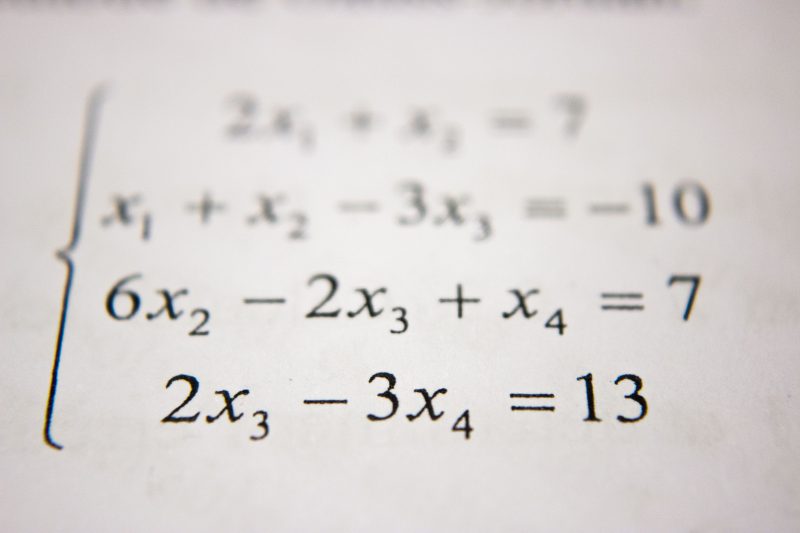 Gemma Moss considers whether COVID-19 can act as a catalyst for change in education, leading to different policy choices and a more stable education system, better able to address the dilemmas that prolonged disruption in education and which current policy does so little to address.
Gemma Moss considers whether COVID-19 can act as a catalyst for change in education, leading to different policy choices and a more stable education system, better able to address the dilemmas that prolonged disruption in education and which current policy does so little to address.
COVID-19 has disrupted education and in the process created a series of dilemmas for schools, families and pupils. In primary schools, normal ways of working have had to adapt to wholly novel sets of circumstances with little reliable information or guidance available on how to handle such an unprecedented situation or how long it would last. In many ways, the crisis has up-ended relations within the education field as schools at the frontline have had to identify quickly what matters most in their own local context and then decide how best to respond, with the resources to hand. This challenges some of the assumptions that underpin the ways in which education policy currently runs in England.
With funding from the UKRI/ESRC Rapid Response to COVID-19 call, I and colleagues at UCL Institute of Education have been tracking primary schools’ responses to the pandemic, since lockdown, using surveys, interviews and documentary collection. We chose to focus on primary schools precisely because they remain strongly connected to their local communities: they operate at an appropriate scale to be able to recognise and respond to local needs.
Our project findings reflect this close connection between schools and their communities. At the start of the crisis, teachers’ priorities focused on pupil and family wellbeing, with many teachers undertaking tasks not conventionally associated with teaching – 72% of our respondents were checking how families were coping in terms of basic food, health, and emotional needs. Headteachers were talking to parents about welfare (86%), delivering hard copy learning resources (55%), checking student welfare on the doorstep (42%) and running food banks or lunch distribution schemes (52%). They were liaising with the local authority and social services, and administering the troubled free school meals voucher scheme. This underlines the vital role primary schools play in supporting their communities and responding to need.
Not surprisingly, such tasks were a higher priority for teachers in schools in the quartile with the highest take-up of free school meals, where needs were greatest. 48% of teachers in these schools reported that they had become more aware of ‘how poverty and overcrowding impacts on my pupil’s lives’. Only 6% felt reassured that ‘that most families in my school have the necessary resources and knowledge to support their children’s learning at home’. 63% made their top priority for teaching during lockdown, ‘ensuring children without online access still have opportunities to learn’. By contrast, the figures for teachers in the quartile with the lowest take-up of free school meals were 16%, 46% and 47% respectively.
COVID has made clear the deep impacts of material poverty on children’s lives. Yet the current way in which our education system runs does little to acknowledge this. Schools’ responsibilities to their pupils are narrowly defined in terms of the attainment data against which they and their pupils will be judged in our high-stakes accountability system. The wider social function schools play in supporting their communities is not part of this calculation. This different orientation to the task at hand has put the teaching profession profoundly at odds with government during the pandemic, not least over the question of the resumption of testing and inspection.
If COVID has clarified for teachers the need for change in the way our education system runs, it has left government largely unmoved. Perhaps this is because the accountability system runs on thin metrics that provide insufficient knowledge of the realities on the ground to fuel good decision-making. Such a system pushes schools into doing what they are told, rather than what they know would work best in their circumstances. Those who do the telling simply do not fully understand the operational dilemmas individual schools face. Something has to give.
In this context we have produced three briefing notes from our study to help shift the debate in education and give due voice to teachers’ concerns. Politicians’ belief that high-stakes testing will keep schools up to the mark and ensure all pupils make the equivalent progress in the same time frame is not borne out by the data. On the contrary, high-stakes testing consistently penalises those schools working with our poorest communities: as things stand, it brings them least support to turn things around. This may help hide uncomfortable truths about the extent of child poverty and the costs economic restructuring places on our poorest communities. It does little to put things right.
We make three modest proposals to help develop a more resilient education system:
- We need stronger connections across the education system that engage all stakeholders in deliberation over how things run.
- Funding to schools working with our most deprived communities needs to be more generous in respect of meeting children’s basic needs, including for food, mental health and welfare.
- We must change our punitive high-stakes accountability system – we can ill afford the instabilities in the sector it creates and the perverse incentives to teach to the test.
In the short term, nothing will be lost and a lot could be gained if we suspend statutory testing and inspection in the primary sector in the year ahead. Research itself has a role in opening up a conversation about how else things might work – not least by placing uncomfortable truths into the public domain. We would urge other stakeholders to make their voices heard. The Education Select Committee Inquiry into the impact of COVID-19 on education and children’s services provides one avenue that is still open.
______________________
Note: the research project on which the above draws on is funded by the UKRI/ESRC Rapid Response to COVID call, project no. ES/V00414X/1. For more information see here.
 Gemma Moss is Director of the International Literacy Centre at UCL Institute of Education. She has been leading the research project, ‘A duty of care and a duty to teach: educational priorities in response to the COVID-19 crisis’ with Alice Bradbury, Sam Duncan, Sinead Harmey and Rachael Levy.
Gemma Moss is Director of the International Literacy Centre at UCL Institute of Education. She has been leading the research project, ‘A duty of care and a duty to teach: educational priorities in response to the COVID-19 crisis’ with Alice Bradbury, Sam Duncan, Sinead Harmey and Rachael Levy.







